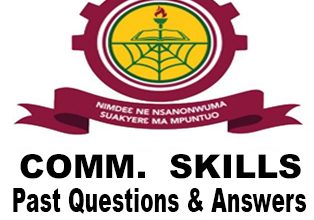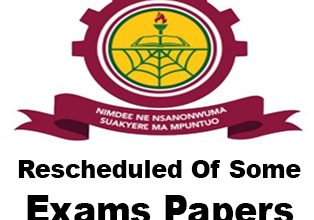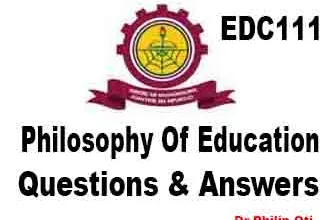Summary of Philosophy Of Education (Chapter Two 4)
Aamusted Philosophy of Education EDC 111
CHAPTER FOUR
PHILOSOPHY OF TEACHING
OBJECTIVES
- PHILOSOPHY OF TEACHING
- Why should a teacher develop a philosophy of teaching?
- Types of philosophy of teaching
- Reflective Practice or Teaching
- The Question and Answer Method or Socratic Method
Recommended
Summary of Philosophy Of Education (Chapter One 1)
Summary of Philosophy Of Education (Chapter Two 2 & 3)
Summary of Philosophy Of Education (Chapter Two 4)
Summary of Philosophy Of Education (Chapter Two 5)
Summary of Philosophy Of Education (Chapter Two 6)
Summary of Philosophy Of Education (Chapter Two 7 & 8)
PHILOSOPHIES OF TEACHING
- Philosophy of teaching is a statement of what you believe about teaching and learning, why you hold those beliefs and how you implement those beliefs and values in the classroom.
- Teaching philosophy is a cornerstone of reflective practice in teaching and learning.
- Every teacher who enters the classroom or other teaching situation has a philosophical framework (teaching philosophy) that guides his/her practice.
What is the Purpose of Developing a Philosophy of Teaching as a Teacher?
- It gives the teacher the starting point or reference point to examine your teaching practice
- It serves as a starting point to monitor the progress or otherwise of your own development as a teacher.
- It enables teachers to share common ideas (team teaching)
TYPES OF PHILOSOPHY OF TEACHING
There are two basic philosophies of teaching. These are
1.traditional view of teaching
2.modern conception of teaching (Bipolar)
Recommended
Summary of Philosophy Of Education (Chapter One 1)
Summary of Philosophy Of Education (Chapter Two 2 & 3)
Summary of Philosophy Of Education (Chapter Two 4)
Summary of Philosophy Of Education (Chapter Two 5)
Summary of Philosophy Of Education (Chapter Two 6)
Summary of Philosophy Of Education (Chapter Two 7 & 8)
The Traditional View of Teaching
meaning and Characteristics
- In this view of teaching, the teacher sees himself as the dispenser of knowledge.
- The main teaching technique usually employed in the traditional view of teaching is the lecture method.
The Greeks and Romans saw education in terms of preparation for adult roles in the adult world.
It is more teacher-centered method because it operates on the basic assumption that the teacher knows best.
The teacher takes on a more center role. The main attention is on what is taught rather than the child who is being taught.
CHARACTERISTCS
- The teacher selects what the learners will learn, the methods and the pace of lesson delivery.
- Teachers have all the knowledge the child needs and therefore prepare to give all to the pupils.
- Learning is entirely dependent on the teacher. Pupils learn when the teacher is present.
- Teacher teaches all the time and does not allow learners to learn on their own.
- All students learn in the same way and they are passive learners.
- The traditional view of teaching reflects the philosophy of idealism.
- Teachers move faster to complete syllabus
Problems with the Traditional View of Teaching
- The pupils appear attentive and receptive but in reality, his mind may be wandering.
- He may simply copy the words of a teacher or a book without any proper understanding.
- Weak learners may be left behind while fast leaners are slowed down.
- Learners interest and abilities are not given adequate attention and consideration.
- Lessons are planned according to the teacher’s wishes, interest, and abilities.
The Modern Conception of Teaching/ Teaching as a Bi-Polar Process
- Form the 18th and 19th centuries, the child-study movements and educationists such as Pestalozzi, Rousseau, Montessori, Froebel and Comenius emphasized the importance of the child’s own needs and abilities in determining the kind of education he needed.
- It is simply a realistic response to the development, interest and characteristics of children.
- The modern conception of teaching philosophy views teaching as assisting pupils to learn for themselves.
- This conception is founded on John Dewey’s definition of teaching ‘as the process of re-arranging the environment for the learners to learn or acquire knowledge by themselves”.
- A modern teacher is a facilitator of learning.
Recommended
Summary of Philosophy Of Education (Chapter One 1)
Summary of Philosophy Of Education (Chapter Two 2 & 3)
Summary of Philosophy Of Education (Chapter Two 4)
Summary of Philosophy Of Education (Chapter Two 5)
Summary of Philosophy Of Education (Chapter Two 6)
Summary of Philosophy Of Education (Chapter Two 7 & 8)
Modern Philosophy of Teaching
- Unlike the traditional view of teaching where pupils sit in rows and listen to their teacher alone to impart knowledge, here the pupils sit in groups all doing something different.
- Some may be seen reading, writing, painting, or any other practical work.
- The methods employed in the modern view of teaching are numerous.
- Some of them are discussion, question and answer method, role playing, demonstration, brainstorming, simulation and dramatization etc.
Teaching as a Bipolar Process
- Teaching as a Bi-polar process explained:
- Many learning psychologists and philosophers have indicated that teaching is not one-way process.
- The teacher and the students should cooperate to ensure learning is effectively obtained.
- It is built on the premise that;
1.Not all children learn in the same manner so that if a teacher talks to all pupils some might benefit, but others might not.
2.Everyone learns at their own pace and not necessarily at the rhythm or pace set by the teacher.
Principles of Modern teaching
- The modern conception of teaching rests on three main principles these are;
- The process of teaching focus on pupils’ current experience
- It recognizes the learners’ responsibility of what is learned and how it is learned.
- Learning can take place in a variety of contexts
Problems with the Modern View of Teaching?
- This trend of education attributes to the child a position that is bad for discipline.
- Most methods employed in learner-centered education lead to chaos in the classroom.
- Learner centered education lacks serious commitment to complete learning.
- Teachers may relax and overly depend on children for learning to occur.
Recommended
Summary of Philosophy Of Education (Chapter One 1)
Summary of Philosophy Of Education (Chapter Two 2 & 3)
Summary of Philosophy Of Education (Chapter Two 4)
Summary of Philosophy Of Education (Chapter Two 5)
Summary of Philosophy Of Education (Chapter Two 6)
Summary of Philosophy Of Education (Chapter Two 7 & 8)
The Use of Question and Answer Method (Socratic Method) in Philosophy
- Schofield describes philosophy as the process of asking questions
- Socrate, one of the greatest philosophers ever, used this question and answer method very often hence the name “Socratic method”.
- His questions, answers and conclusions are recorded in the philosophical dialogues of his greatest student Plato.
- Socrate employed the maieutic element which literally meant “giving birth” and so this earned him the accolade “intellectual
Importance of the Socratic method
Competent and effective use of the Socratic method can yield the following results;
- Clarification of pupils’ ideas and avoidance of hasty conclusions
- Removal of errors and preconceived ideas from pupils’ minds in order not to fall victim to mediocrity.
- It helps students to become aware of their own limitations and shortcomings
- Acquisition of authentic information from the right sources.
- Note:
- questions and answer method must be used carefully. Leading and complex questions should be avoided in the professional task of teaching.
- Leading questions especially stifle creativity on the part of students.
Recommended
Summary of Philosophy Of Education (Chapter One 1)
Summary of Philosophy Of Education (Chapter Two 2 & 3)
Summary of Philosophy Of Education (Chapter Two 4)
Summary of Philosophy Of Education (Chapter Two 5)
Summary of Philosophy Of Education (Chapter Two 6)
Summary of Philosophy Of Education (Chapter Two 7 & 8)




